California Wildfires: The Toll So Far and Dangers Yet to Come
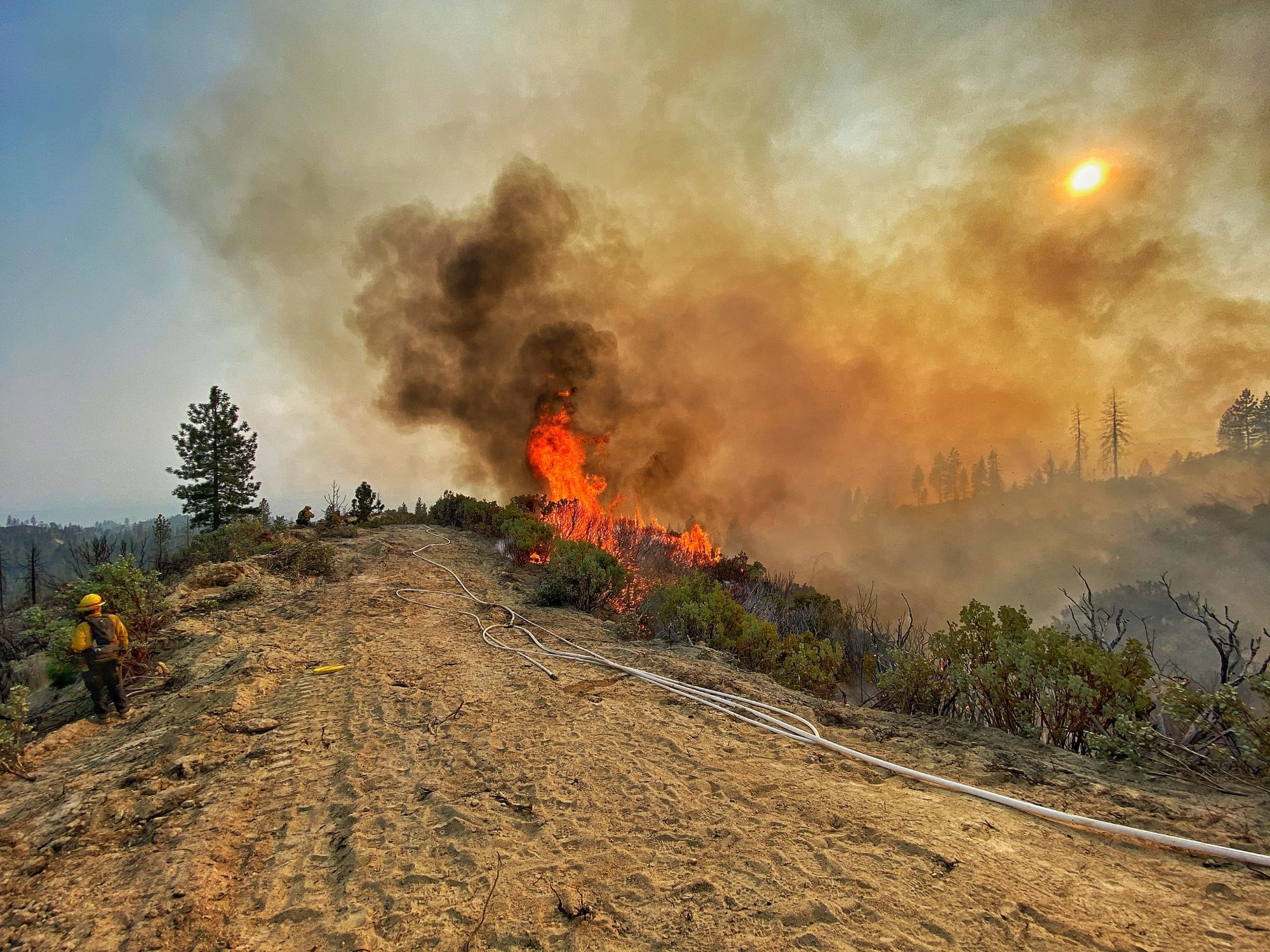
Fire approaching a fire containment line. Photo courtesy of Pranay Manghirmalani.
Since as early as June, California firefighters have been taking on one of the most powerful forces on earth — Mother Nature. A perfect storm of conditions led to widespread wildfires throughout the state, as well as along the entire West Coast. The firefighters have faced danger and trauma, both physical and mental, over the months, and new dangers are constantly approaching.
More than 4 million acres have burned in California, with the largest wildfire complex in the state’s history, the August Complex, being responsible for more than 1 million acres burned. The wildfires have claimed the lives of 31 people and have damaged or destroyed 9,247 structures. And the chances of new wildfires sparking to life is still a strong possibility, with several red flag warnings still active throughout the state.
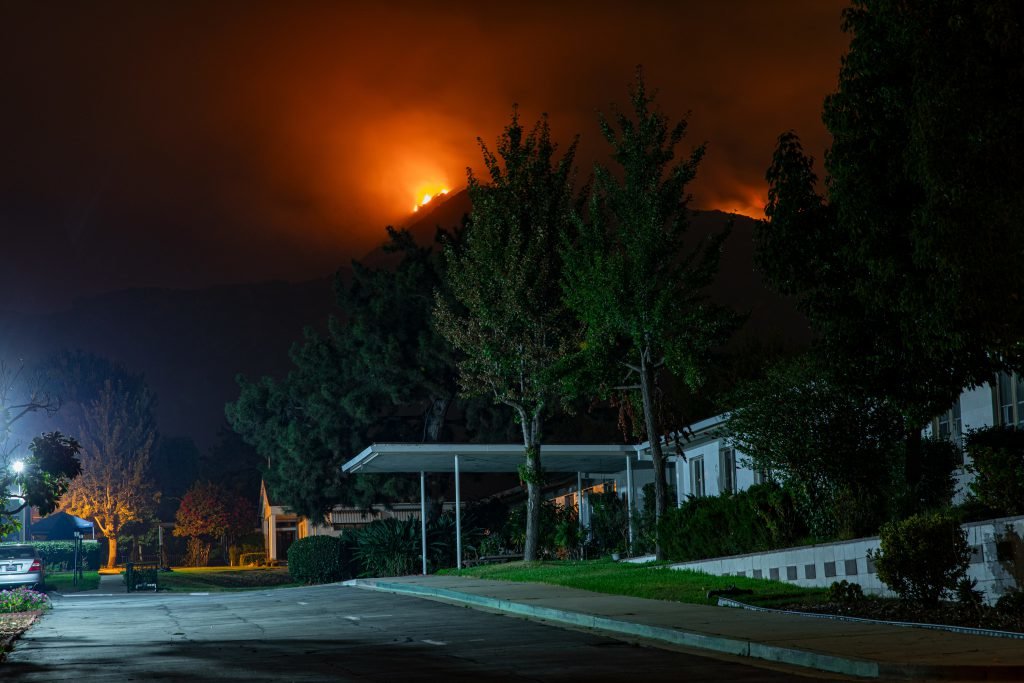
With millions of acres burned and the subsequent barren land, a new danger is on the horizon. According to Weather.com, California’s rainy season typically lasts from October to April. Landslides, mudslides, and flash floods are all strong possibilities with incoming rain and the vast amount of charred land.
The California Department of Conservation advises residents to be prepared: “Californians who live on or below hillsides — especially in areas impacted by recent wildfires — should be aware that the rainy season increases the possibility of potentially dangerous debris flows, a geologic hazard that is often identified in the news as mudflows or mudslides.”
Coffee or Die Magazine spoke with Pranay Manghirmalani, a California firefighter and military veteran, to find out what they are doing to prepare for the next natural disasters and how the morale and mindsets of the firefighters are faring.
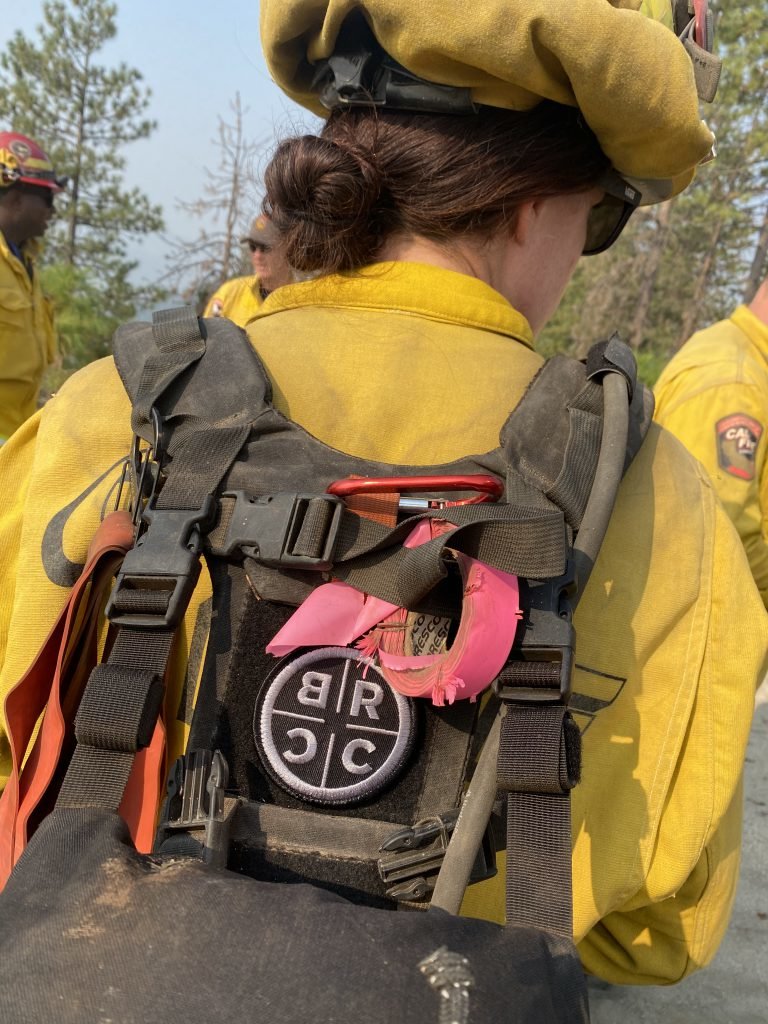
Manghirmalani said he has never worked such a busy fire season before. He explained that fewer staff in Cal Fire due to attrition rates and other factors, the COVID-19 restrictions on training and tactics, and the large prevalence of wildfires have all increased the challenges for the fire department this year compared with the past.
“2020 has been a nightmare, and it’s not over yet,” Manghirmalani said. “People always say, ‘Next year is going to be the worst fire season on record,’ and we would laugh and chuckle because we are like, ‘Yeah, this is going to be the worst fire season yet,’ but every fire season is getting worse.”
He said the very nature of firefighting is physically exhausting, and that’s why they train to stay at the peak of their physical fitness. Despite their preparations for the season — the pre-placement of equipment, boosting the number of firefighters available, and reading the weather — Manghirmalani said nothing could truly prepare the firefighters’ mental health for the death and destruction that the 2020 wildfires have brought.
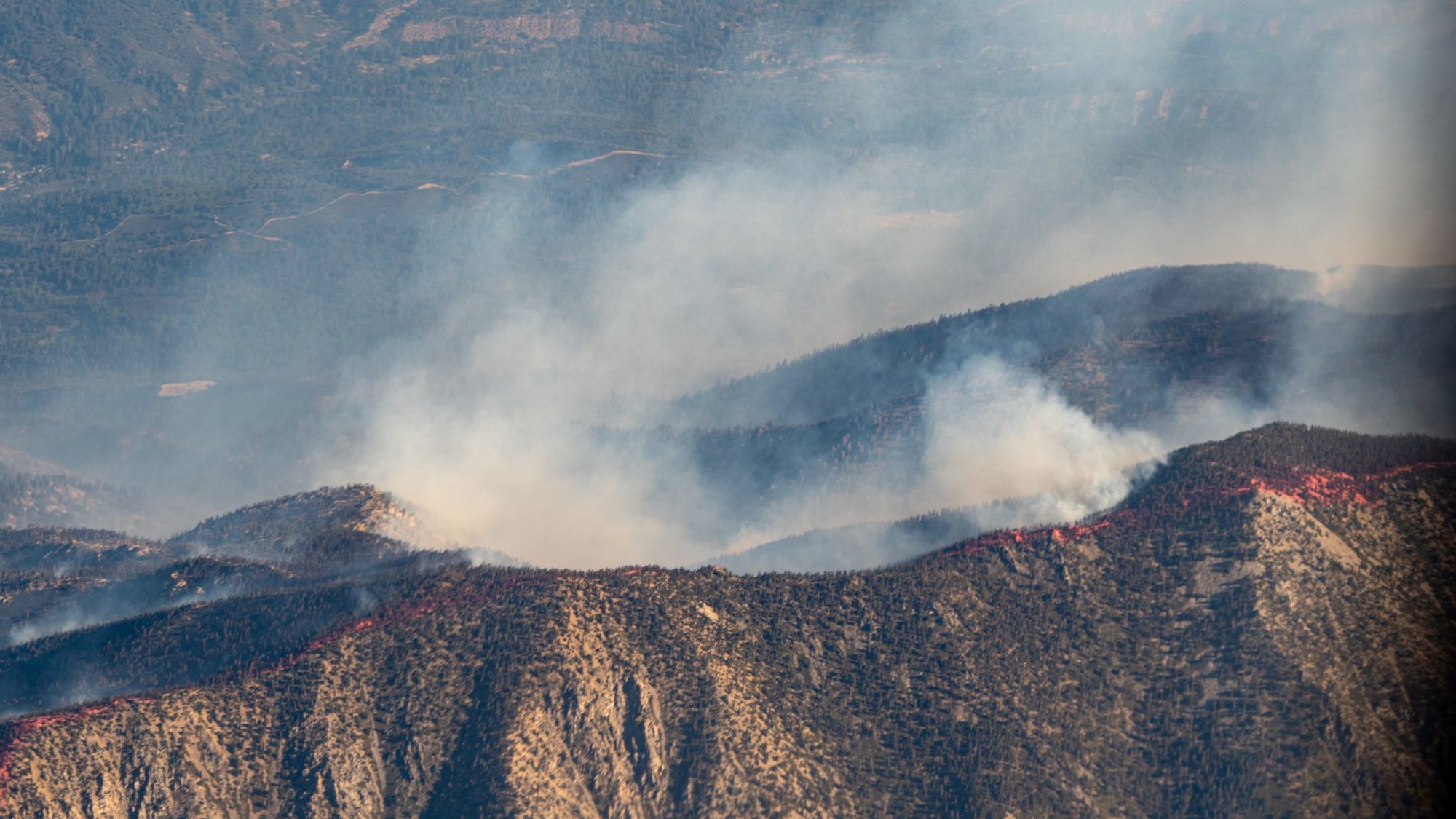
“This year, morale is not that high. We’re all hurting. Unfortunately, this takes a toll on our mentality,” Manghirmalani said. “We are seeing death and destruction at an exponential rate.”
Seeing the destruction that these wildfires have caused leads to a large amount of stress and can lead to mental health suffering. Manghirmalani emphasized that there are resources available to them and that firefighters should use them if they are struggling with mental health.
Despite the stress and exhaustion, he said, they will keep driving forward to get the job done.
“We’re going to get back on that damn fire engine when those three beeps go off and do the job to 100% because we know that life, property, and environment are at risk, and we do it for the public,” Manghirmalani said. “We do it for the brothers and sisters right next to us on the fire engine, and we do it for ourselves.”
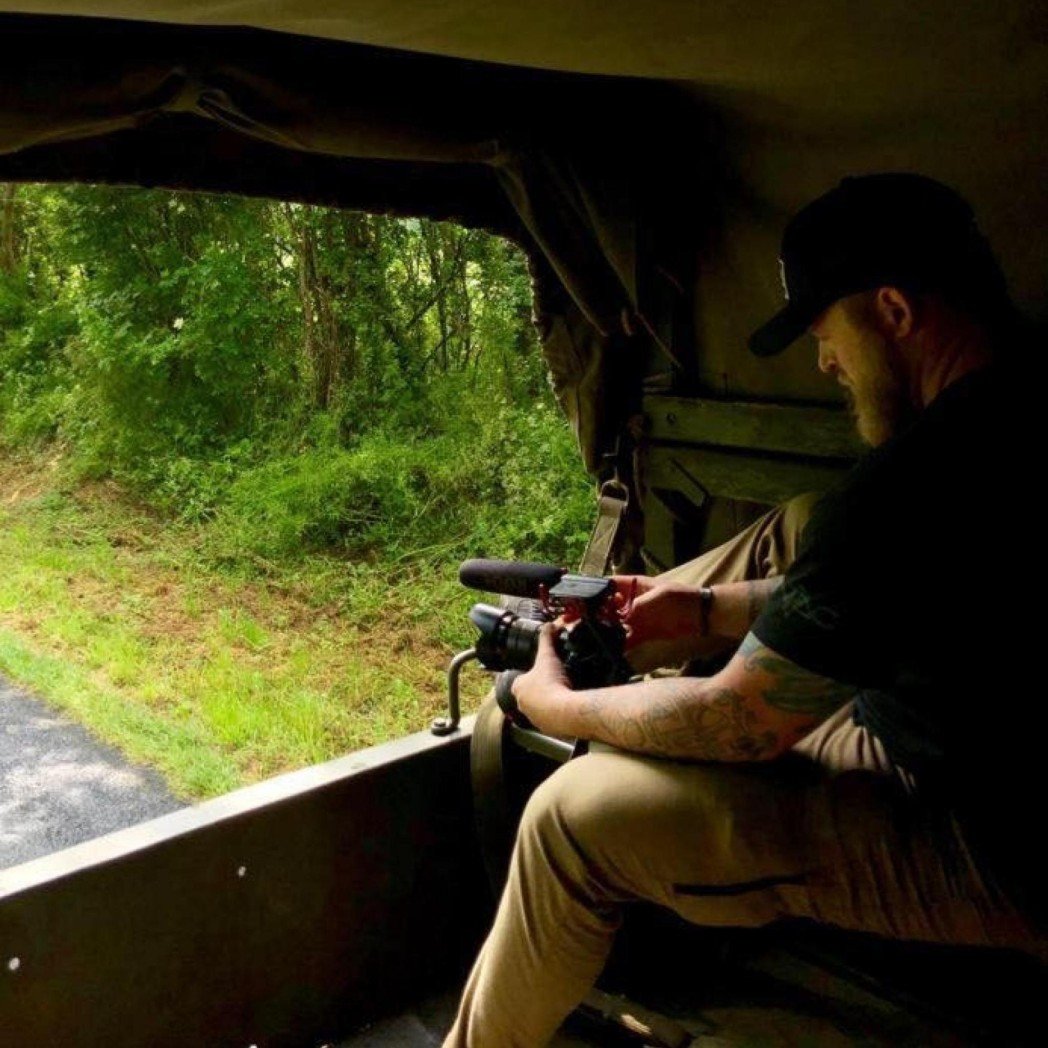
Joshua Skovlund is a former staff writer for Coffee or Die. He covered the 75th anniversary of D-Day in France, multinational military exercises in Germany, and civil unrest during the 2020 riots in Minneapolis. Born and raised in small-town South Dakota, he grew up playing football and soccer before serving as a forward observer in the US Army. After leaving the service, he worked as a personal trainer while earning his paramedic license. After five years as in paramedicine, he transitioned to a career in multimedia journalism. Joshua is married with two children.
BRCC and Bad Moon Print Press team up for an exclusive, limited-edition T-shirt design!
BRCC partners with Team Room Design for an exclusive T-shirt release!
Thirty Seconds Out has partnered with BRCC for an exclusive shirt design invoking the God of Winter.
Lucas O'Hara of Grizzly Forge has teamed up with BRCC for a badass, exclusive Shirt Club T-shirt design featuring his most popular knife and tiomahawk.
Coffee or Die sits down with one of the graphic designers behind Black Rifle Coffee's signature look and vibe.
Biden will award the Medal of Honor to a Vietnam War Army helicopter pilot who risked his life to save a reconnaissance team from almost certain death.
Ever wonder how much Jack Mandaville would f*ck sh*t up if he went back in time? The American Revolution didn't even see him coming.
A nearly 200-year-old West Point time capsule that at first appeared to yield little more than dust contains hidden treasure, the US Military Academy said.












